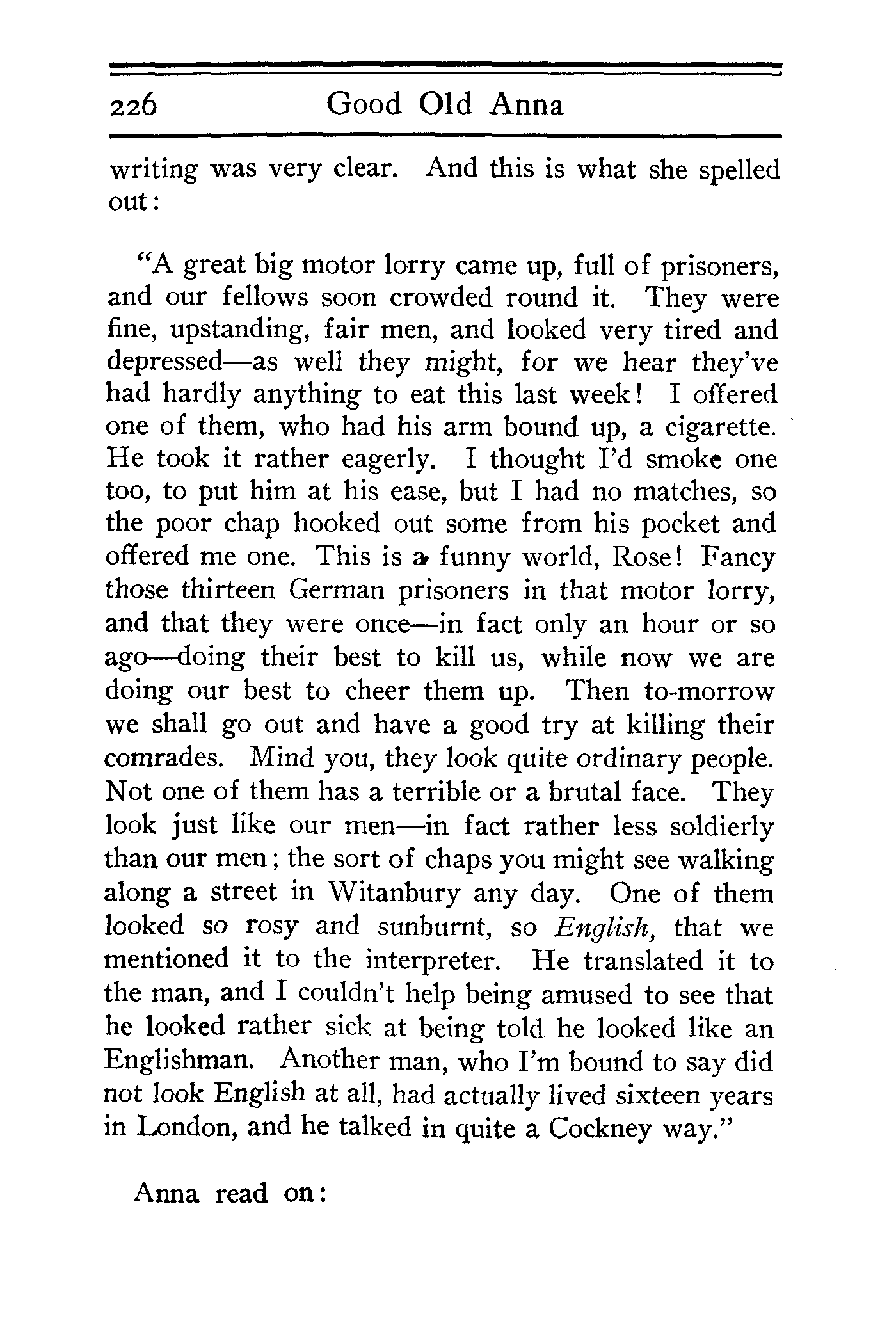 p225 _
-chap- _
toc-1 _
p226w _
toc-2 _
+chap+ _
p227
p225 _
-chap- _
toc-1 _
p226w _
toc-2 _
+chap+ _
p227
writing was very clear. And this is what she spelled
out:
@@@@"A great big motor lorry came up, full of prisoners,
@@@@and our fellows soon crowded round it. They were
@@@@fine, upstanding, fair men, and looked very tired and
@@@@depressed -- as well they might, for we hear they've
@@@@had hardly anything to eat this last week! I offered
@@@@one of them, who had his arm bound up, a cigarette.
@@@@He took it rather eagerly. I thought I'd smoke one
@@@@too, to put him at his ease, but I had no matches, so
@@@@the poor chap hooked out some from his pocket and
@@@@offered me one. This is a funny world, Rose! Fancy
@@@@those thirteen German prisoners in that motor lorry,
@@@@and that they were once -- in fact only an hour or so
@@@@ago -- doing their best to kill us, while now we are
@@@@doing our best to cheer them up. Then tomorrow
@@@@we shall go out and have a good try at killing their
@@@@comrades. Mind you, they look quite ordinary people.
@@@@Not one of them has a terrible or a brutal face. They
@@@@look just like our men -- in fact rather less soldierly
@@@@than our men; the sort of chaps you might see walking
@@@@along a street in Witanbury any day. One of them
@@@@looked so rosy and sunburnt, so _English,_ that we
@@@@mentioned it to the interpreter. He translated it to
@@@@the man, and I couldn't help being amused to see that
@@@@he looked rather sick at being told he looked like an
@@@@Englishman. Another man, who I'm bound to say did
@@@@not look English at all, had actually lived sixteen years
@@@@in London, and he talked in quite a Cockney way."
Anna read on:
[[226]]
p225 _
-chap- _
toc-1 _
p226w _
toc-2 _
+chap+ _
p227